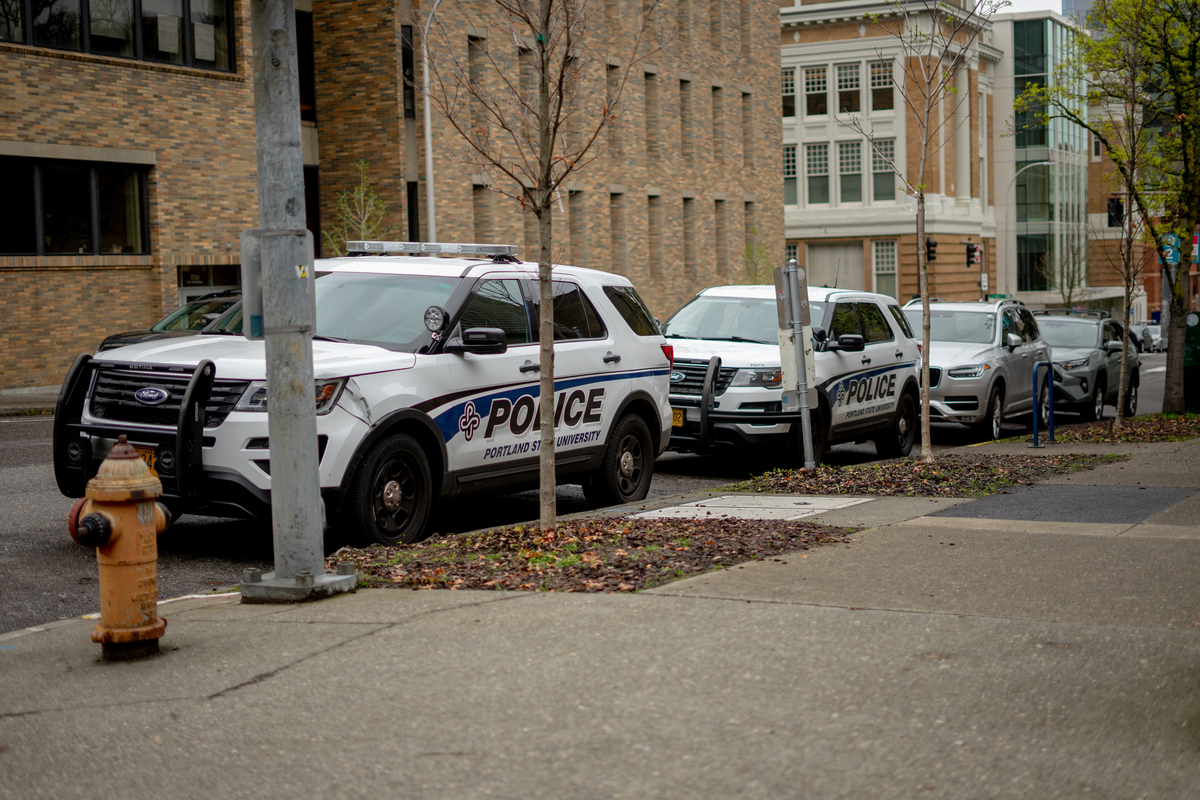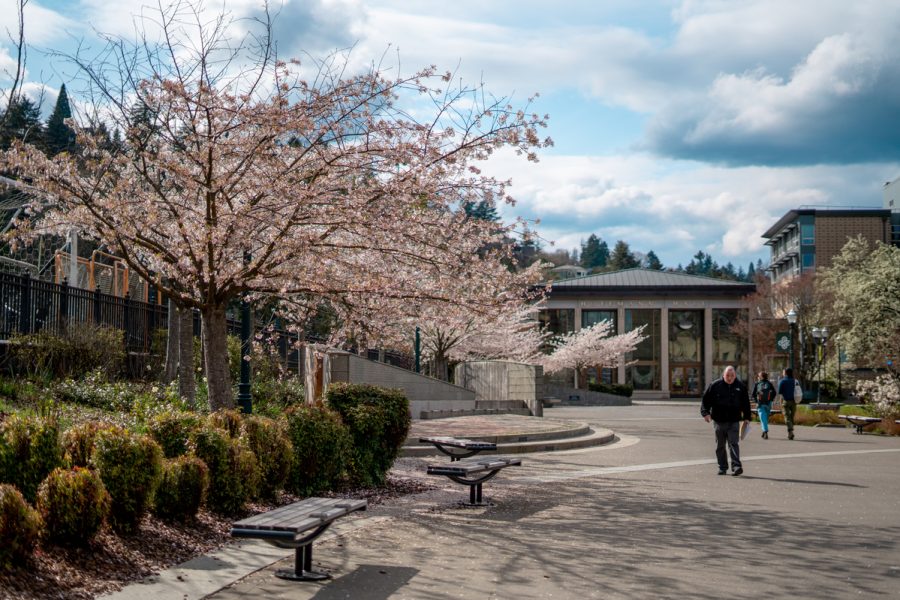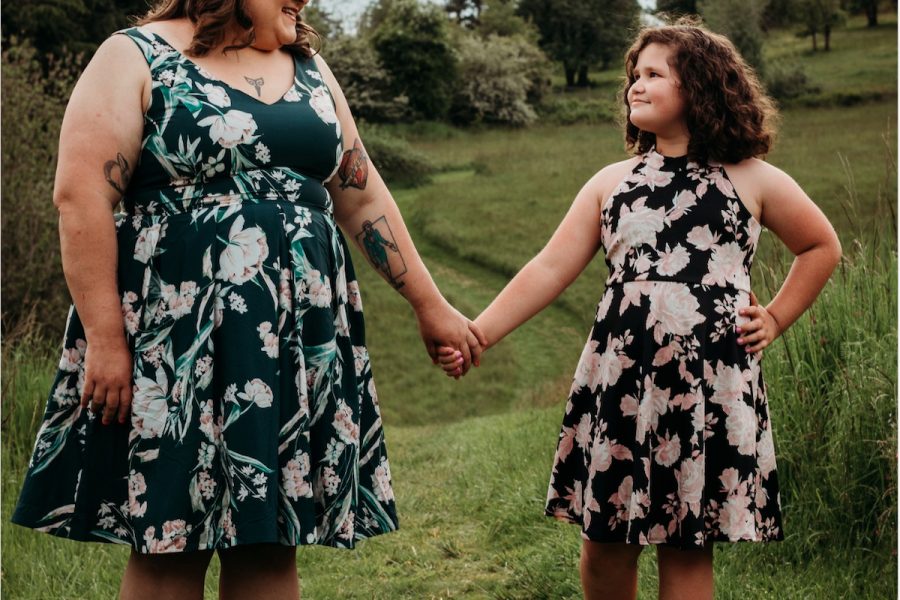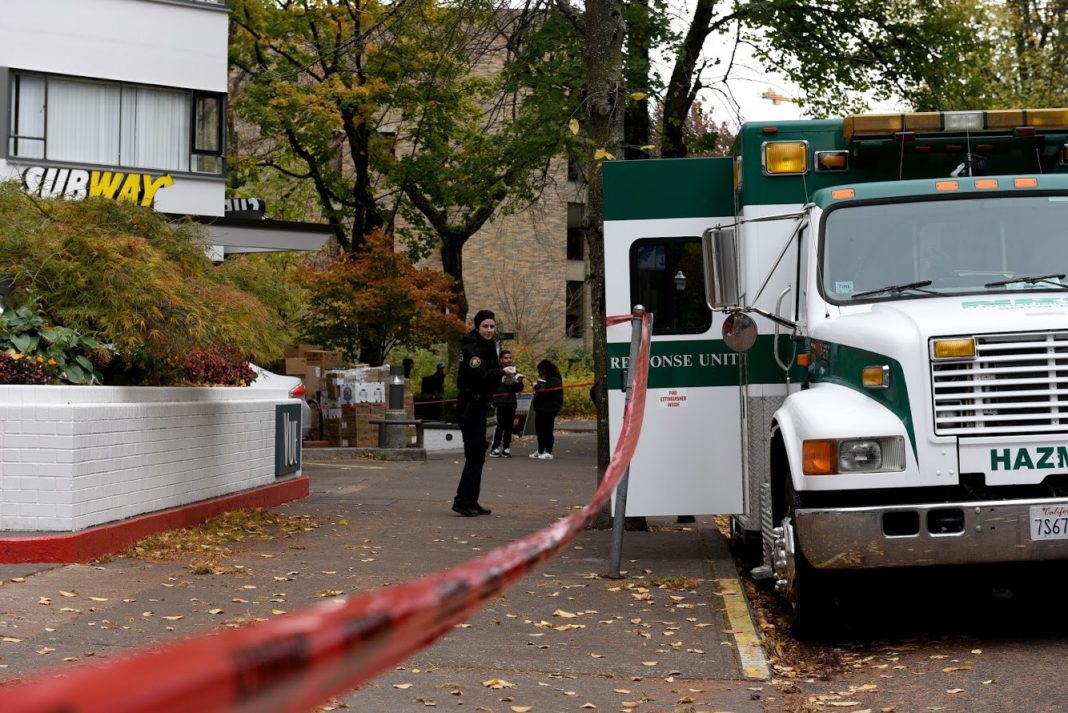Portland State campus police officers are now permitted to go on armed patrols, according to a campus-wide email sent out by President Stephen Percy on April 11.
The decision to allow campus police to carry arms while on patrol comes after having unarmed patrols since 2021, a decision made in response to calls for justice on behalf of Navy veteran Jason Washington, who campus officers killed in 2018.
The email notifying campus went out the week after students returned to campus for spring quarter—Chief Willie Halliburton, director of the Campus Public Safety Office, however, said officers returned to patrolling with arms on Feb. 14.
“I made the decision on February 14,” Halliburton said. “I informed the president it wasn’t a decision to go full time and permanently armed patrols from this day forward if I make another decision. On March 9, I informed the president that we need to continue in this direction.”
The Campus Public Safety Office (CPSO) has a staff of nine police officers, seven public safety officers and eight student ambassadors. University police trained in de-escalation techniques respond to emergency scenarios, including those involving violence or weapons. Public safety officers’ duty is to patrol campus and provide assistance when needed, according to the CPSO webpage. The student safety ambassador program launched in 2020, training up students to help with patrols and provide low-scale, community-oriented safety around campus, such as safety escorts.
The email on April 11 stated that “limited assistance from the Portland Police Bureau due to increased demands for officers across the city” and “an increasing number of weapons on and near campus” necessitates armed patrols. In 2020, officers encountered three instances of weapons on campus, according to Halliburton. In 2021, that number doubled to six weapons, jumping up to 13 in 2022.
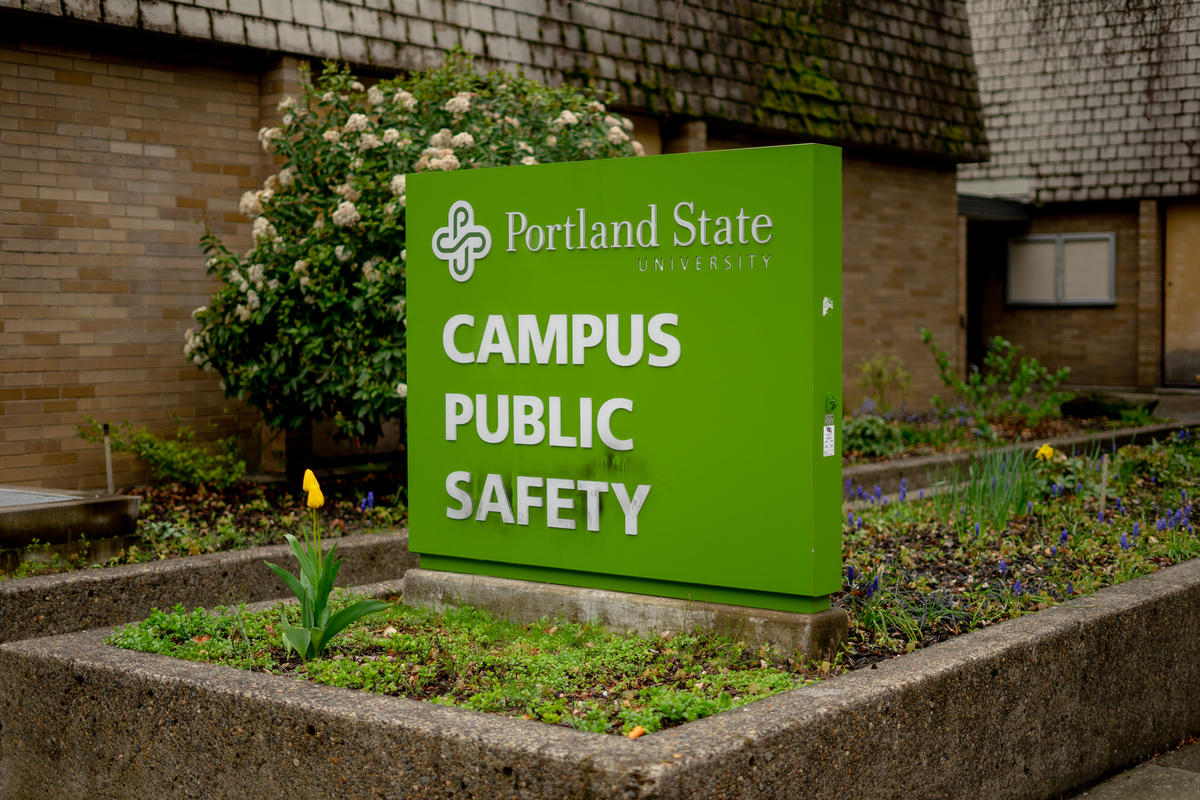
Halliburton cited these weapons as including knives, a hammer, an automatic handgun, rifles and shotguns. He claimed responsibility when asked why students were not notified of the encounters.
“I think that’s my error on that end because I was wanting to not frighten a lot of our campus, let our officers have control,” Halliburton said. “But it got to a point where it had to be efficient as information had to come out and so I took the blame on that for not notifying the campus.”
Maureen Murphy is a junior who transferred to PSU from PCC last fall. She recalled feeling alarmed after reading the April 11 email and immediately looked for campus organizing around the issue.
“If that is true, I don’t think that that is sufficient reason to arm campus security officers or safety officers,” Murphy said in response to increased violence on campus. “I think the most important part is that they have proven that they should not be armed because they killed someone. I grew up in a community that had a lot of gun violence and in no way do armed police officers or security officers make me feel safer or make a situation safer.”
Murphy isn’t alone in her sentiments. A quantitative study done in 2020 by the Queer Resource Center at PSU shows varying levels of comfortability interacting with campus officers, depending on identifying characteristics of gender.
Of the 565 students who responded, 62% of cisgender men agreed that they were comfortable talking to campus safety officers in passing, while only 42% of cisgender women agreed. Meanwhile, 75% of trans women “disagreed or strongly disagreed,” and no other gender minority had more than half of the respondents “agree or strongly agree.”
The same question posed using identifying characteristics of race illustrated a similar lack of comfortability with campus security in minority demographics. Of the 556 students who responded to this pair of questions, only 40% “agreed or strongly agreed”—63% of whom identified as white. Of those identifying as African American/Black, Native American and Native Hawaiian/Pacific Islander, 57% were in disagreement.
Murphy expressed concern around the lack of community involvement in the decision process, particularly since students, faculty and staff are among those most affected by the decision. Since the email went out she has reached out to Disarm PSU, a campus coalition committed to reimagining campus safety and disarming campus police, to get involved in the conversation.
“There’s so many different aspects to safety and to feeling safe,” she said. “I think most of it is resolved through being creative as a community and amongst ourselves and talking with each other.”
The University Public Safety Oversight Committee (UPSOC) is made up of students, faculty and staff charged with overseeing campus public safety by the PSU Board of Trustees, who made the decision to arm officers on campus in 2014. Nonetheless, Chief Halliburton, as outlined by the CPS Policy Manual, “exercises command over all personnel in the Department,” as director of both police and public safety services on campus.
This is part of what Katie Cagle, behavioral health project assistant at PSU and a leading member of Disarm PSU, is hoping to change. She and two other faculty members attended the board of trustees meeting on April 20, where she provided public comment about the decision.
“Halliburton and Percy are the faces of this conversation around the unarmed patrols and then rearming the patrols,” Cagle said. “But the Board of Trustees is the only body that can actually make a difference. The fact that the chief could just unilaterally decide that he was going to change this policy… just from a process perspective, like not even considering the fact that we’re talking about deadly weapons, there’s just no other decision making process at the university that works like that.”
Cagle said that since the April 11 email, she’s talked with around 50 new faculty, students and staff who have reached out to Disarm PSU with questions and concerns about the announcement. The influx of interactions has motivated Cagle and those actively involved with Disarm PSU to begin rooting efforts in a three-prong approach—educating the campus community on the history of campus police and of Jason Washington, researching state and federal laws regarding a police force on campus and creating a space for community conversations around safety.
“The thing that’s giving me hope right now is how many students are activated,” Cagle said. “How many students do care, even before they know the story of Jason Washington, and then when they hear the specifics of his story, they have an even more clear understanding of how dangerous it is to have armed cops on campus.”
PSU isn’t the only college campus arming its patrols. On the east coast, students at George Washington University are currently protesting plans to allow campus police to carry weapons. According to the most recent Bureau of Justice Statistics Report by the U.S. for the 2011 to 2012 academic year, around 75% of campuses were using armed officers compared to 68% during the 2004 to 2005 school year.
It’s clear where college students’ concerns arise from—since 1999 there have been 377 school shootings, according to data collected by the Washington Post.
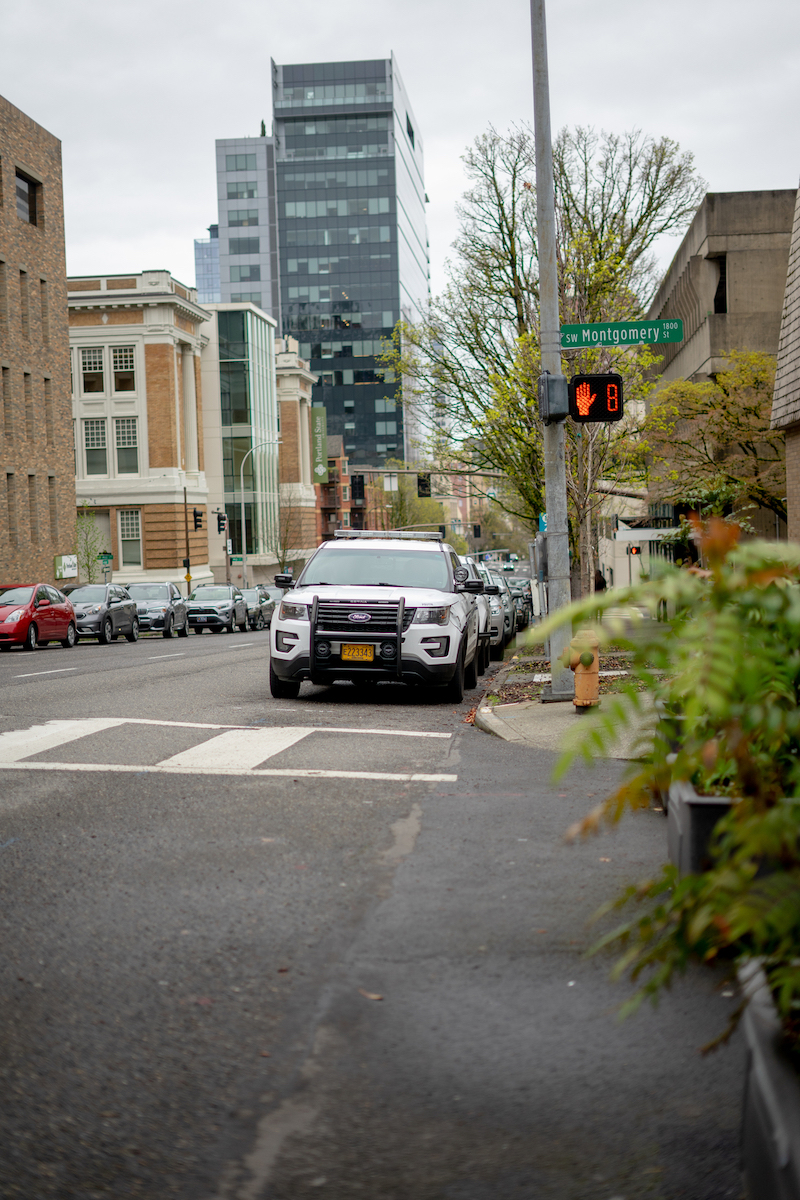
“When I think of how I feel on campus and what makes me feel unsafe, the things I think about almost every day are like mass shootings,” Murphy said. “I think about it every time I’m on campus, and it’s been proven that security officers don’t play a role in addressing that issue. I think that as a student at PSU, I feel like I’ve received no communication or very little communication on what PSU is doing to address that specific issue.”
Campus Public Safety has a link to Active Threat Information on their website, which shows an active shooter safety video produced by the City of Houston, along with a list of what to do in an active threat situation at PSU. A web page, however, isn’t enough.
To create a greater sense of security on campus, organizations including the International Association of Campus Law Enforcement Administrators cite listening to the community and building relationships between students and officers as major components of rethinking models of campus security.
Chief Halliburton set up “Coffee with the Chief,” originally on Monday mornings at 10 a.m. at Smith Memorial Student Union in the dining area next to the food court. The slot is moving to Wednesdays at noon after Cagle voiced concern that the original timetable is during an academic block when many students have class.
“What I’m hoping to accomplish by having this dialogue is to receive input from our community about how we can improve,” Halliburton said. “Right now to disarm is not an option as far as what the level [of safety concern] is. But other ways that we can improve, how can we partner with our campus and what can we do with improving our service?”
Percy stated that moving forward, he and Halliburton will be meeting monthly with UPSOC to review campus safety conditions and discuss the path forward.
“The other day, we were locked out of a classroom and security officers open the door and they were armed,” Murphy said. “And I was just like, why, why do you need a gun to unlock a classroom?”
For those concerned with campus safety, reach out to info@pdx.edu or contact CPSO at cpso@pdx.edu. To get in touch with Disarm PSU, connect on Instagram @disarmpsunow.
The CPSO office number for emergencies is 503-725-591. For non-emergency related issues, contact 503-725-4407.

